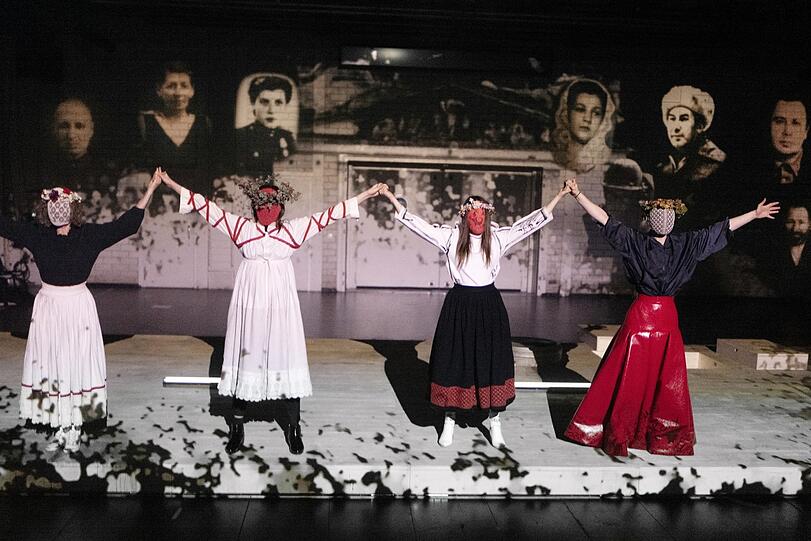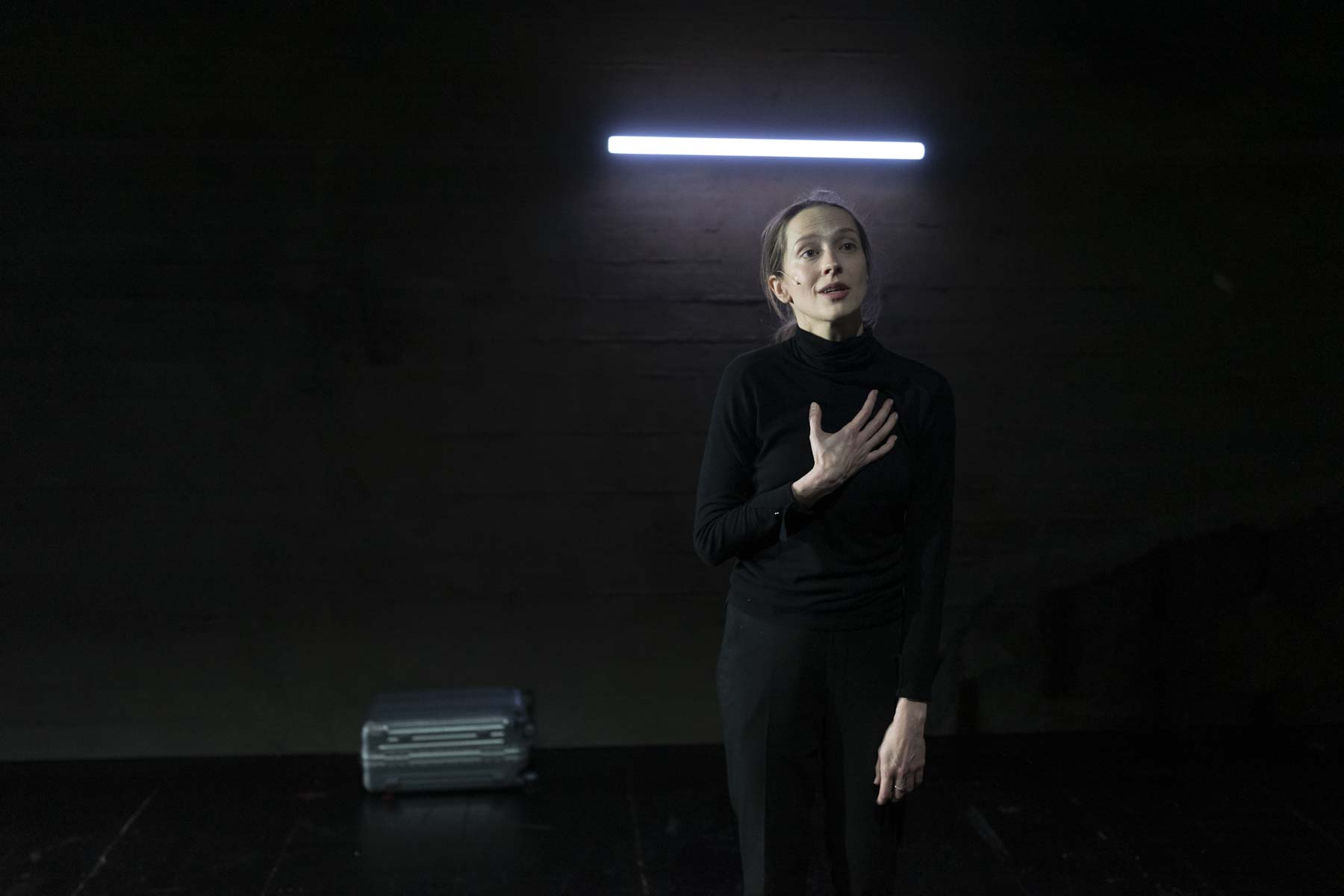Ukrainian play «Green Corridors» at the Kammerspiele: art against perplexity
Jan-Christoph Gockel is staging the commissioned play «Green Corridors» by the Ukrainian author Natalka Vorozhbyt at the Kammerspiele.

Munich — Kevin, the eight-year-old hero of the US film comedy «Alone at Home», does not spontaneously come to mind when it comes to the war in Ukraine. But there is a connection to the film music of the family action strip at Christmas time. The Christmas song «Carols Of The Bells», which is popular especially in English-speaking countries, can be heard there. The melody is based on a Ukrainian folk song, which was arranged by the composer Mykola Leontovych. He was shot by a Soviet agent in 1921 and is one of the three characters from the history of Ukraine, which Natalka Vorozhbyt tells about in «Green Corridors».
Another is the poet Olena Teliha, who was murdered by the German occupiers in Babyn Yar in 1942. She belonged to the nationalists of her country, as did the far more radical Stepan Bandera, the leader of a far-right organization that collaborated with the National Socialists during the Second World War. After the war, he lived in Munich, where he was killed by the KGB in 1959. All three are played by an actress (Svetlana Belesova) who fled Kiev from the Russian raid, because the biographies are to be filmed in the West.
The shootings extend the space deep into the past century, take on a second dramatic level, and the debate about the role played by Bandera, who is close to German fascism, is one of the often ingenious and unexpected references and cross-references that Vorozhbyt makes. After all, the present can only be understood from the past, explains the film director (André Benndorf). This fundamentally wise realization calls the souffleuse (Jutta Masurath) into question: «But with the past, I certainly no longer understand the present».
It is hard to describe more succinctly and aptly the general perplexity in view of the events in Ukraine. The main narrative thread takes place in this present and is about four women who left their homeland via «green corridors»: the 45-year-old actress, a 25-year-old nail designer from Butcha (Tanya Kargaeva), a 35-year-old housewife from Kharkiv (Maryna Klimova) and a 65-year-old pensioner and «cat friend» from Chernihiv (Julia Slepneva).
The actress has a trait that is also said to be true of cats: she has several lives. In a kind of magical realism, she is repeatedly slain by the others. She is recognized as a performer of a Russian television series and arouses anger when she asks to take part in demonstrations or visit the cultural institutes that are free for the refugees — art in general and what it has to do with people’s lives is also one of the questions that Voroshbyt discusses.
In his production, Jan-Christoph Gockel manages to do the incredible thing of putting all this and much more on stage without cringing under the complexity. He has also priced in the knowledge of the limitations of art when it comes to war, torture and escape. He deals fearlessly with the often grotesque humor of the dialogues and situations. For example, a social worker (Johanna Eiworth) is so hysteria-like empathetic that she has to be comforted by an applicant.

But when the young woman from Butsha calmly reports about the rapes she suffered for days, it becomes quiet in the hall. And then there is this wonderful moment when she taps the wall, which made the spit surface very narrow, with her finger. Amazingly light as a feather, it falls over and the view becomes clear to the entire depth of the Therese-Giehse-Halle. A theater of strong settings, in which the Ukrainian illustrator Sofiia Melmyk also has a share. She is sitting next to it with a tablet, from which her live-made pictures are projected onto the wall until the wall falls.
